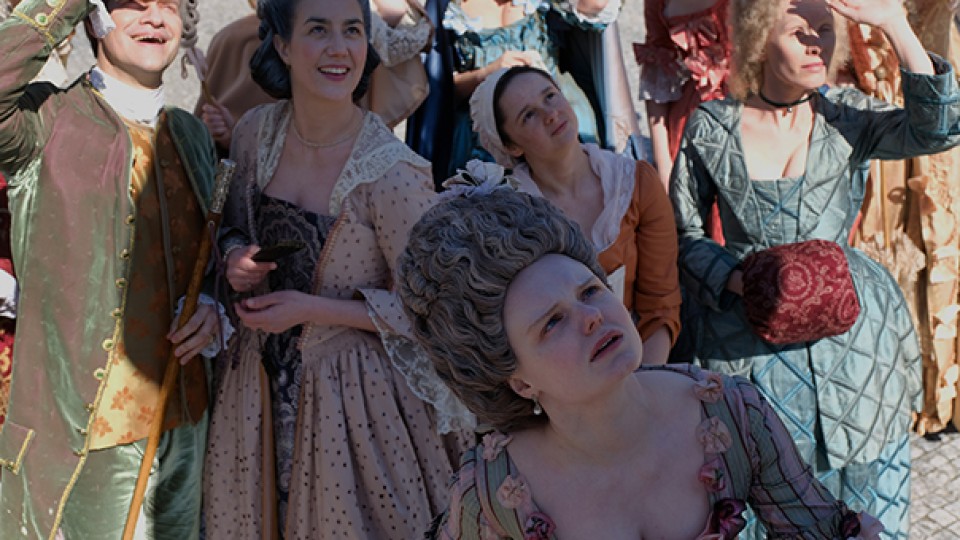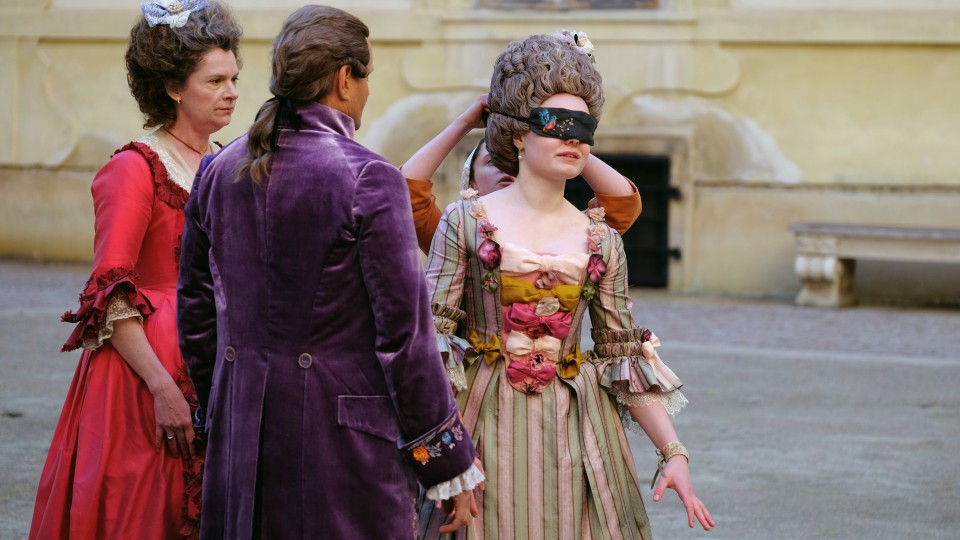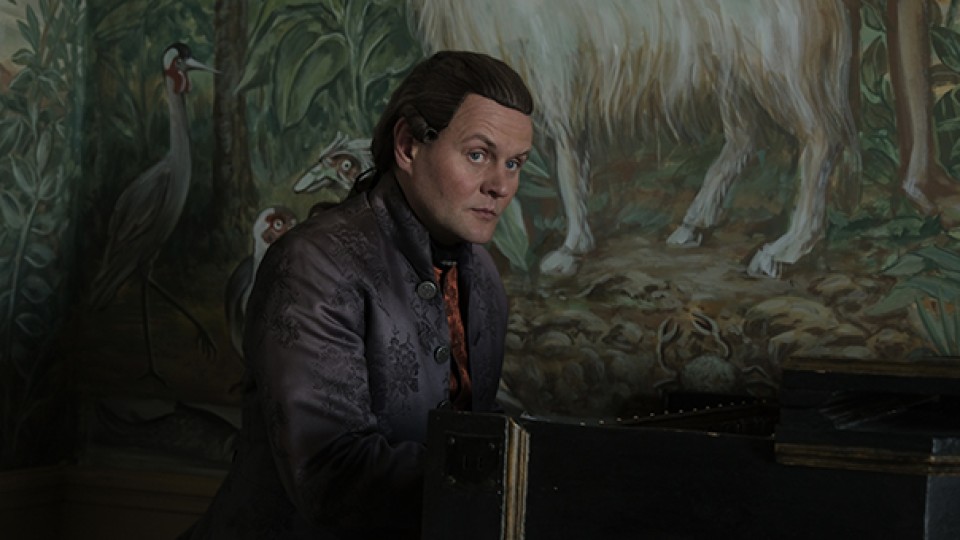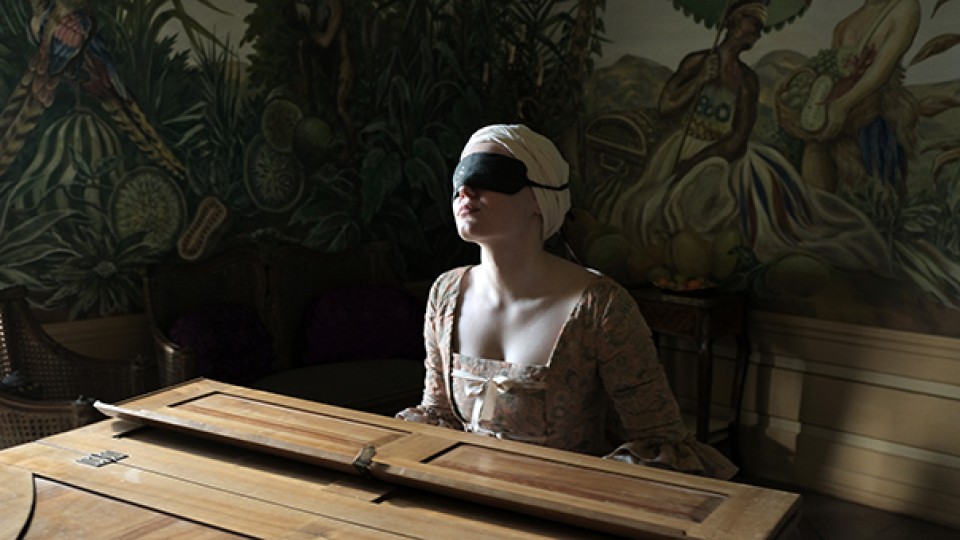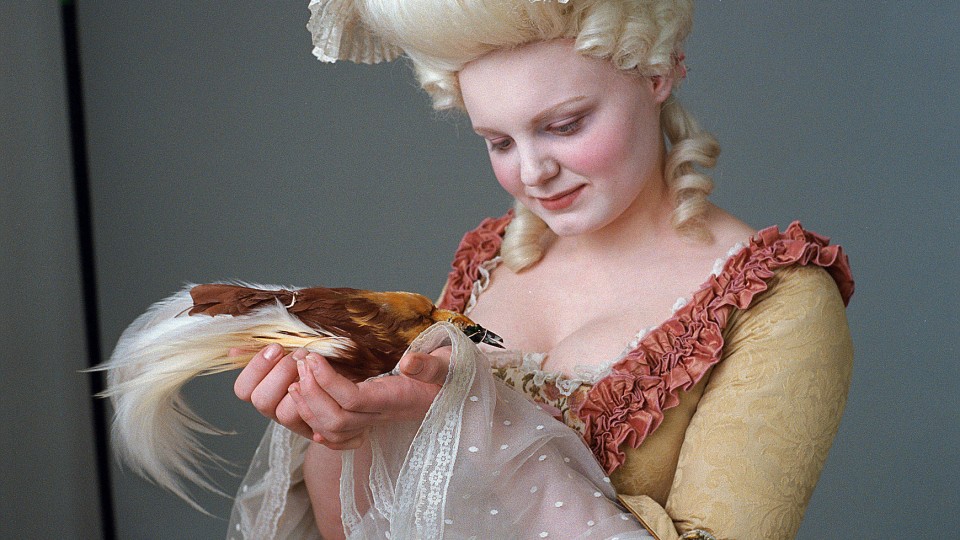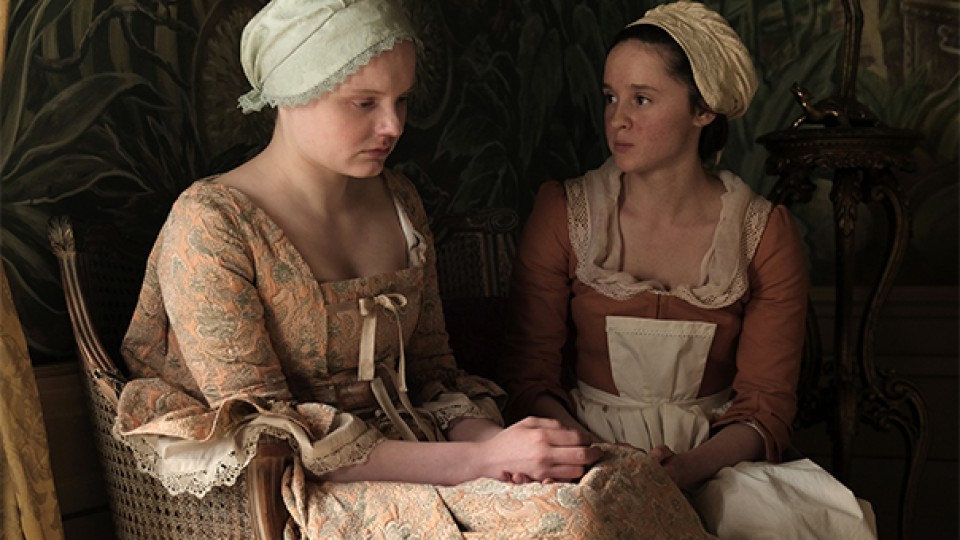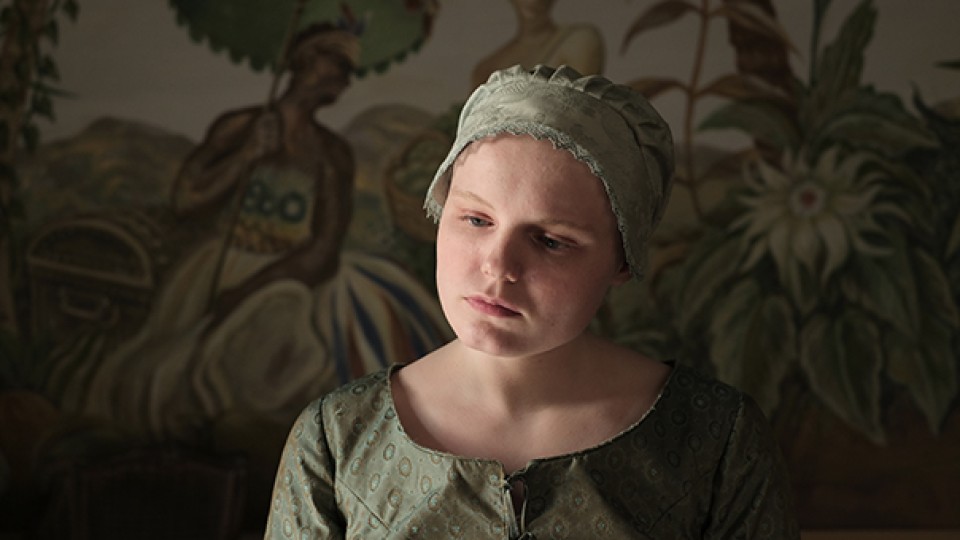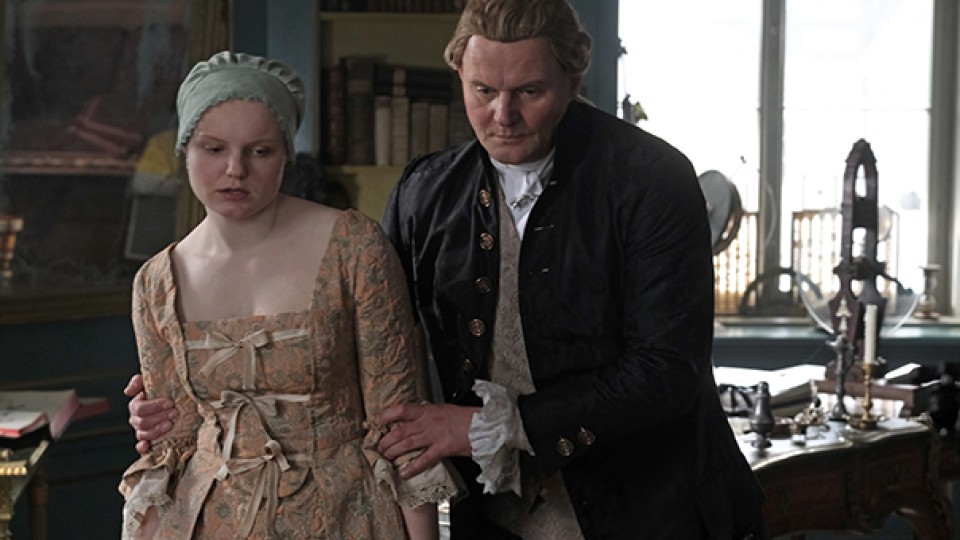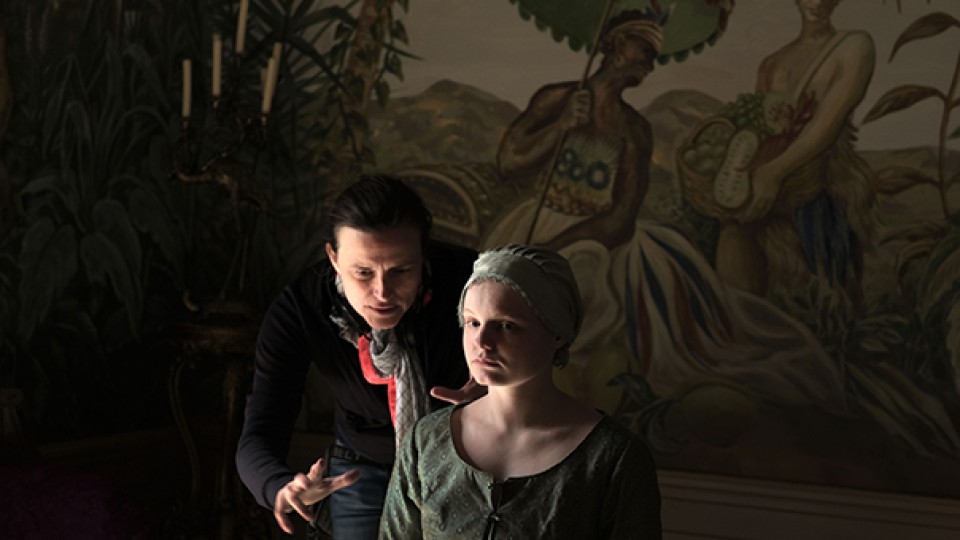Kicking off what looks to be a high-profile festival run with competition berths in San Sebastian and Toronto’s Platform program, Mademoiselle Paradis should have little trouble securing distribution in multiple European regions — its profile assisted by the rising star of Romanian leading lady Maria-Victoria Dragus, who doubles down on the strong impressions she made in Cristian Mungiu’s Graduation and Michael Haneke’s The White Ribbon.
(…) a brilliant production designer in Katharina Wöppermann, whose hyper-ornate furnishings and finishes here evoke the false, stifling politesse of Rococo Vienna.
(…) That’s a lot of personal and symbolic strain to place on a single character, but Dragus’ superb performance can carry it.
Dragus conveys the sense of a woman genuinely overwhelmed by her own senses.
Guy Lodge, Variety
An exquisitely crafted period drama.
Allan Hunter, Screen Daily
Mademoiselle Paradis is a dark period drama, elegantly depicted through Christine A Maier’s cinematography, and set in the culturally vibrant Habsburgian era.
Resi, mesmerisingly portrayed by rising star Dragus, is a true pioneer of her generation, in an open-minded but still excessively austere artistic society.
Mademoiselle Paradis is not a movie that talks about the past, because just like Resi, there are still women today who are forced to choose between a depressing but secure darkness, and a frightening but awfully revealing light.
Vassilis Economu, Cineuropa
Mademoiselle Paradis’, brillante reflexión sobre el compromiso personal del artista, y lo habitual de esta edición, otra inspirada interpretación femenina
En la 65º festival de San Sebastián, y a la mitad de la sección oficial, ya no basta presentar una buena película (como es el caso) sino que, dada la extraordinaria calidad de programación, para sobresalir tiene que ser extraordinaria o rozar la obra maestra.Carlos Loureda, fotogramas

